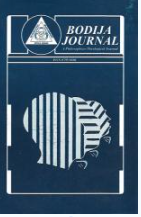Habermas’ Critical Social Theory of Knowledge: A Paradigm for 21st Century West African Socio-Political Order
Abstract
It is common place among philosophers that knowledge possesses a pragmatic value for humans both at private and communal levels. This is evident in Habermas’ critical social theory that consider knowledge as a tool at the service of human interests. Habermas rejected the prevailing positivists’ conception of knowledge in epistemology and the social sciences as identification of static facts. This paper posited that Habermas’ critical social theory of knowledge has a great propensity to chart a map to success for the recent socio-political consciousness, interests and anticipations in the 21st century West African socio-political order. However, this new political consciousness or awareness permeating the West African region portrays an outlook of not transcending the realm of wishful thought due to the absence of any concrete theoretical framework. With the aid of the analytical and the hermeneutical methods to explain different concepts in Habermas’ position and to articulate their application in the new historical or socio-political experience of West African, the paper recommended that adopting Habermas’ critical rationality as a theoretical framework will enhance the new socio-political experience in the West African sub-region. It further identified the academia, political parties, social media, media houses, organisations in religious groups as possible agents that will aid the realisation of new 21st West African socio-political dispensation.


